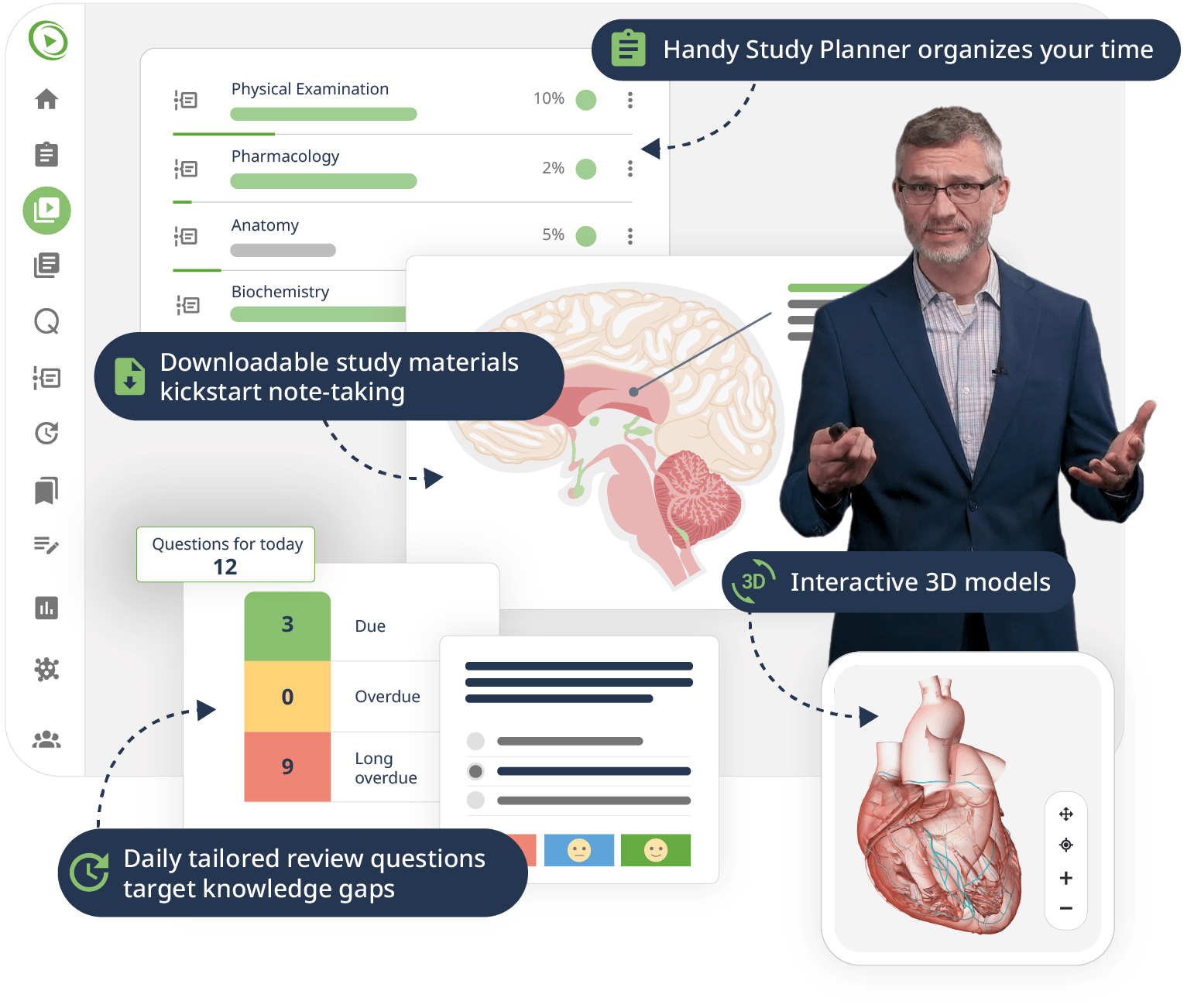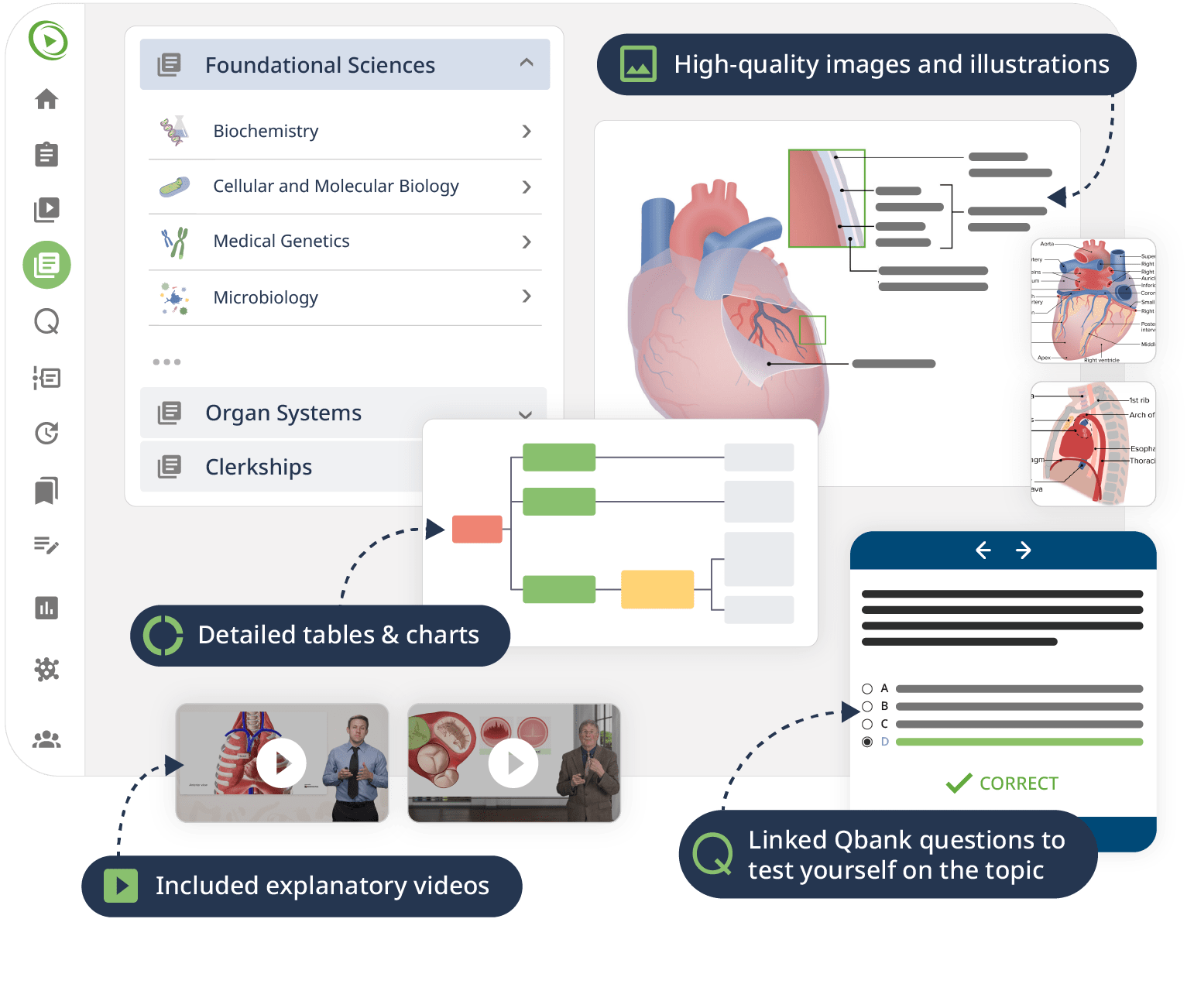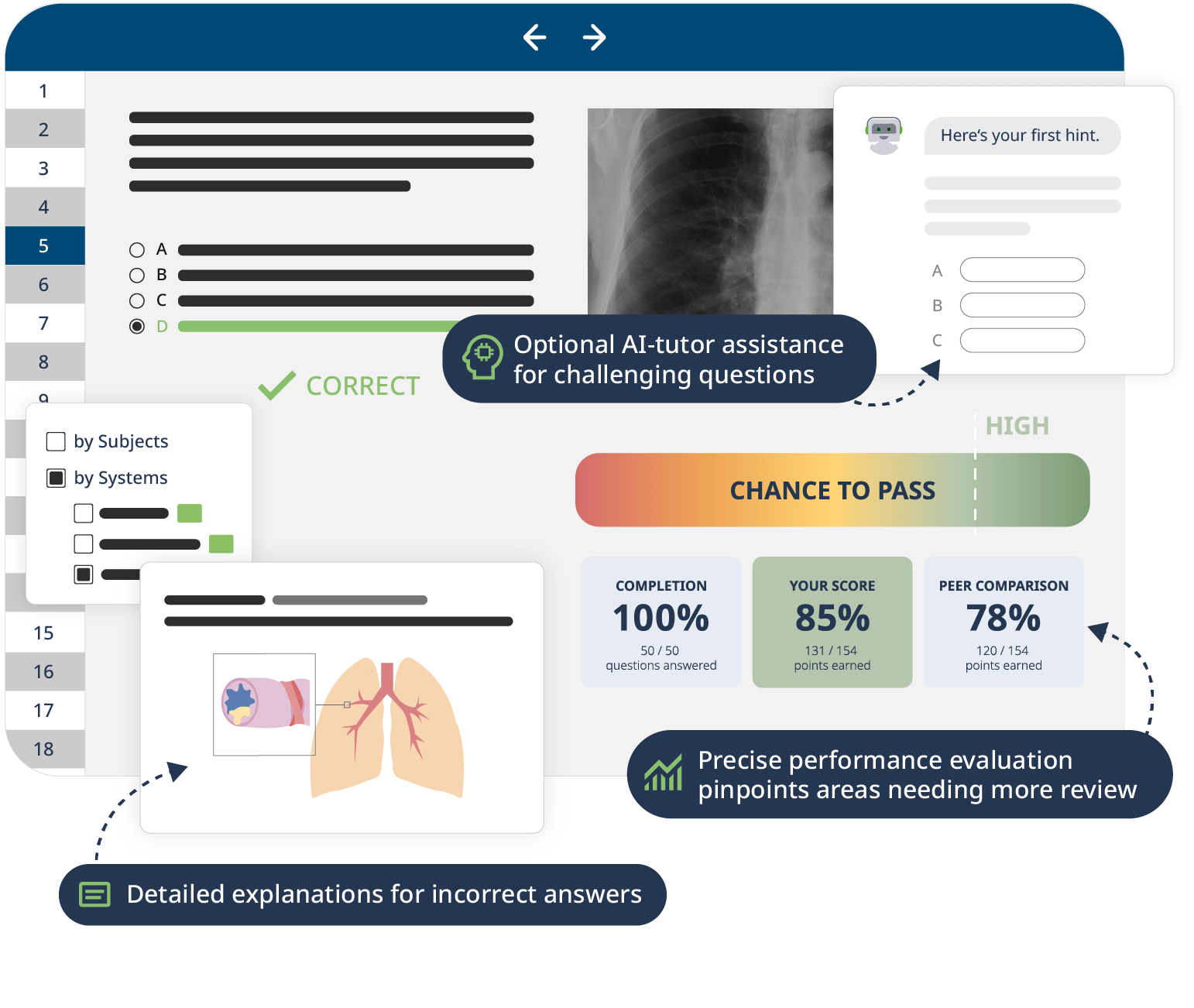Understand the aging process and geriatric conditions
with the complete online course taught by Dr. Georgina Cornwall
As the average age in many populations around the globe increases, the field of geriatrics is quickly gaining significance. Treating elderly patients poses unique challenges like dealing with multimorbidity and polypharmacy, ethical issues around consent and end-of-life care, and taking functional and cognitive decline into consideration.
This course provides you with a solid understanding of the unique care needs of older patients. Georgina Cornwall, PhD, walks you through all aspects of aging, from cellular aging and genomic instability to the effects of environmental factors such as sunlight exposure and toxins. You will also learn the mechanisms how these age-related organic changes can lead to common degenerative conditions like dementia.
A series of Video Lessons in combination with high-quality animations and illustrations will explain the physiological basics and anomalies of the aging brain. Interactive quiz questions, downloadable study materials, and a USMLE-style Qbank further support understanding and retention.
By the end of this course, you will have a comprehensive overview of the aging process and will be able to confidently approach the care of elderly patients.


















